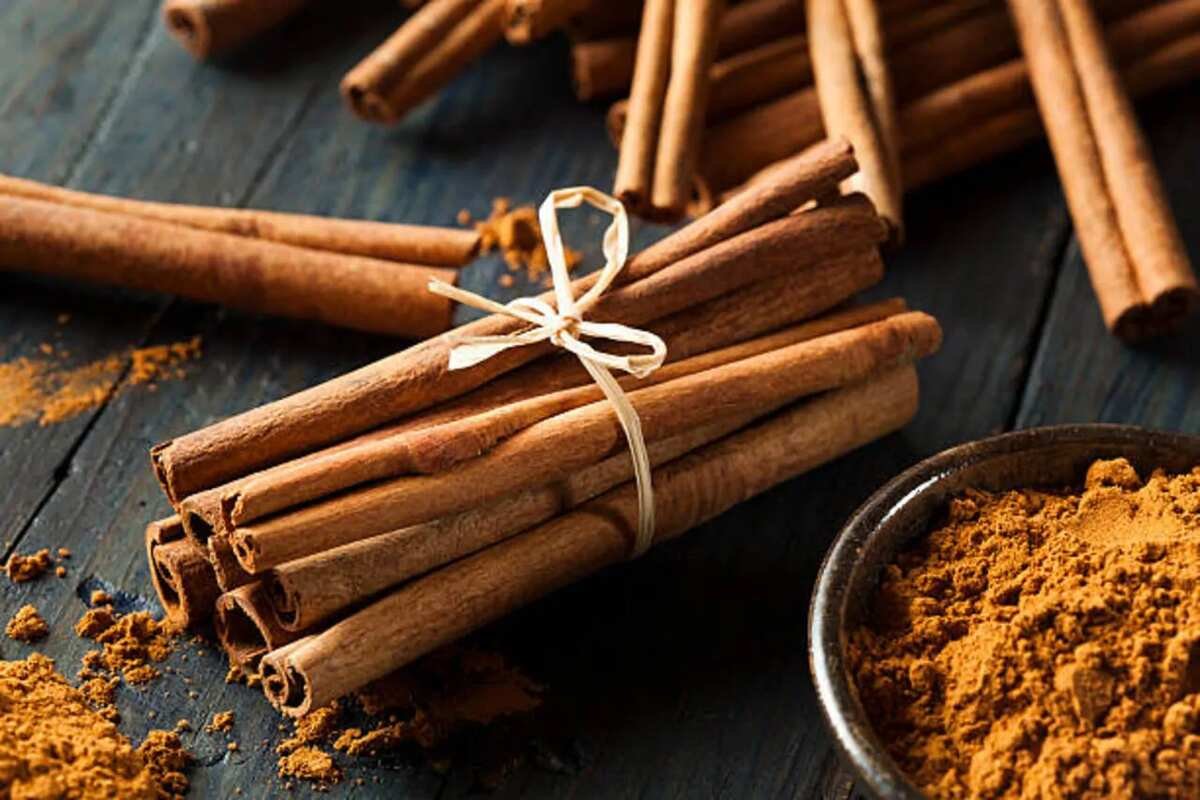New Delhi, 17 August 2025: Maintaining healthy blood sugar levels is critical for overall wellness—whether you’re managing diabetes, prediabetes, or simply aiming for better metabolic health. While diet, exercise, and medication play central roles, nature offers powerful support through medicinal herbs. For centuries, herbal remedies have been used to help regulate blood sugar, improve insulin sensitivity, and reduce complications related to diabetes.
In this article, we explore 10 scientifically supported herbs that naturally help balance blood sugar levels, along with how they work, what the research says, and how you can safely incorporate them into your lifestyle.
1. Cinnamon (Cinnamomum verum / cassia)
How it helps:
Cinnamon improves insulin sensitivity and reduces insulin resistance. It also slows carbohydrate breakdown in the digestive tract, preventing blood sugar spikes after meals.
Research-backed benefits:
Multiple studies have shown that cinnamon (particularly the cassia variety) can lower fasting blood glucose levels. A meta-analysis published in the Annals of Family Medicine found that cinnamon intake significantly reduced fasting blood sugar and cholesterol levels.
How to use:
½ to 1 teaspoon daily in tea, smoothies, or sprinkled on food. Cassia cinnamon should be used in moderation due to coumarin content; Ceylon cinnamon is safer for long-term use.
2. Fenugreek (Trigonella foenum-graecum)
How it helps:
Fenugreek seeds are rich in soluble fiber, which slows glucose absorption. They also contain compounds that improve insulin function.
Research-backed benefits:
A study in the International Journal for Vitamin and Nutrition Research found that consuming 10 grams of fenugreek daily improved blood sugar control in people with type 2 diabetes.
How to use:
Soak 1–2 tablespoons of fenugreek seeds in water overnight and drink in the morning, or use powdered fenugreek in cooking or capsules.
3. Berberine (from plants like Berberis and Goldenseal)
How it helps:
Berberine activates AMP-activated protein kinase (AMPK), a key enzyme in regulating glucose metabolism. It helps the body use insulin more effectively and reduces liver glucose production.
Research-backed benefits:
Clinical trials have shown that berberine is as effective as metformin in lowering blood glucose in type 2 diabetics.
How to use:
Typically taken in capsule form (500 mg, 2–3 times daily), but always consult a healthcare provider before use.
4. Gymnema Sylvestre
How it helps:
Known as the “sugar destroyer,” Gymnema reduces sugar cravings and enhances insulin function by regenerating pancreatic beta cells.
Research-backed benefits:
Studies have demonstrated improved glycemic control and reduced dependency on insulin or medications in type 2 diabetics taking Gymnema extracts.
How to use:
Available in capsule, tea, or powder form. Common dosage is 200–400 mg daily.
5. Bitter Melon (Momordica charantia)
How it helps:
Bitter melon contains compounds like charantin and polypeptide-p that mimic insulin and enhance glucose uptake by cells.
Research-backed benefits:
Several studies have reported significant blood sugar-lowering effects, especially in people with type 2 diabetes.
How to use:
Can be consumed as juice, cooked as a vegetable, or taken in capsule form. Juice should be taken in small amounts due to its strong taste and potency.
6. Holy Basil (Ocimum sanctum / Tulsi)
How it helps:
Holy basil reduces oxidative stress and improves pancreatic function, leading to better glucose regulation.
Research-backed benefits:
Clinical studies have found that daily consumption of tulsi can reduce fasting and post-meal blood sugar levels.
How to use:
Drink tulsi tea, chew fresh leaves, or take as a supplement (250–500 mg daily).
7. Aloe Vera
How it helps:
Aloe vera gel contains phytosterols and compounds that enhance insulin sensitivity and reduce blood glucose levels.
Research-backed benefits:
A study published in the Journal of Diabetes & Metabolic Disorders found that aloe vera significantly reduced fasting blood sugar and HbA1c in prediabetic patients.
How to use:
Drink aloe vera juice (unsweetened) in moderation—1–2 tablespoons daily.
8. Ginseng (Panax ginseng / American ginseng)
How it helps:
Ginseng helps improve insulin sensitivity and increases insulin secretion in the pancreas.
Research-backed benefits:
A study published in Diabetes Care showed that American ginseng lowered postprandial (after-meal) blood glucose levels in people with type 2 diabetes.
How to use:
Take ginseng tea or supplements. Dosage varies; typically 200–400 mg daily.
9. Turmeric (Curcuma longa)
How it helps:
Curcumin, the active compound in turmeric, has strong anti-inflammatory and antioxidant effects that improve insulin function and reduce glucose levels.
Research-backed benefits:
A clinical trial found that curcumin supplementation delayed the onset of type 2 diabetes in prediabetic individuals.
How to use:
Add turmeric to food, drink golden milk, or take curcumin capsules (with black pepper for absorption). Standard dose: 500–1,000 mg curcumin daily.
10. Sage (Salvia officinalis)
How it helps:
Sage improves insulin sensitivity and lowers blood sugar after meals. It also supports liver health, which plays a key role in glucose storage and regulation.
Research-backed benefits:
In a trial published in The British Journal of Nutrition, sage tea improved fasting blood sugar and lipid profiles in diabetic patients.
How to use:
Drink as tea or use in cooking. Can also be taken as an extract or capsule.
How to Safely Use These Herbs
While these herbs offer promising blood sugar-regulating benefits, they should not replace prescribed medications or professional medical advice. Here are a few safety tips:
- Consult your doctor: Especially if you’re taking diabetes medications, as some herbs may enhance their effect and risk hypoglycemia (low blood sugar).
- Start small: Begin with small doses to test your body’s response.
- Monitor blood sugar: Track your glucose levels to see how your body responds to herbal supplements.
- Choose quality products: Use high-quality, standardized extracts from reputable sources.
Lifestyle Still Matters Most
Herbs can support blood sugar control, but they work best as part of a broader healthy lifestyle. For optimal results:
- Eat a low-glycemic, whole-foods-based diet
- Exercise regularly (especially walking after meals)
- Manage stress (which raises blood sugar)
- Sleep 7–8 hours per night
When combined with these habits, herbs can offer significant metabolic support—helping balance blood sugar naturally and prevent complications.
Balancing blood sugar naturally isn’t just about avoiding sugar—it’s about building a foundation of habits, foods, and natural supports that improve insulin sensitivity and metabolic function over time. These 10 powerful herbs have shown real promise in scientific studies and traditional medicine alike.
Whether you’re managing diabetes or just want better energy and long-term health, incorporating these herbs into your routine—alongside lifestyle changes—can help stabilize blood sugar and support your journey to wellness.







